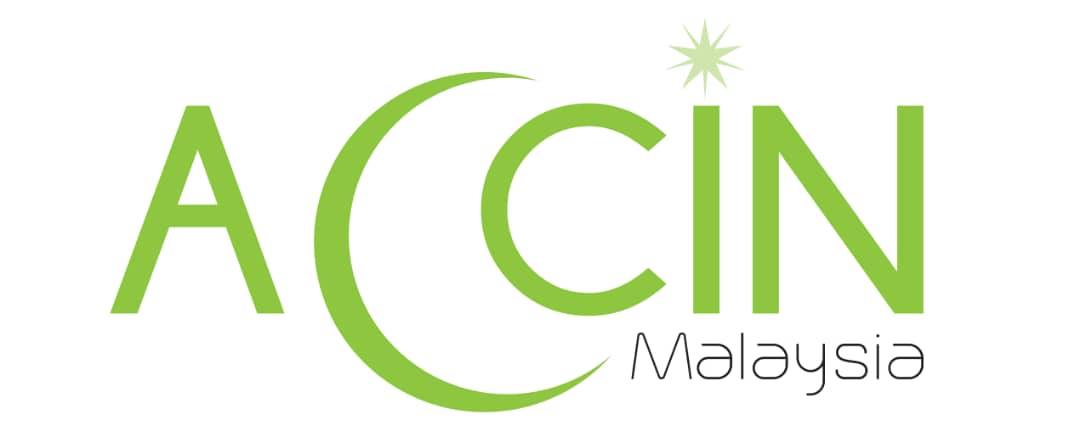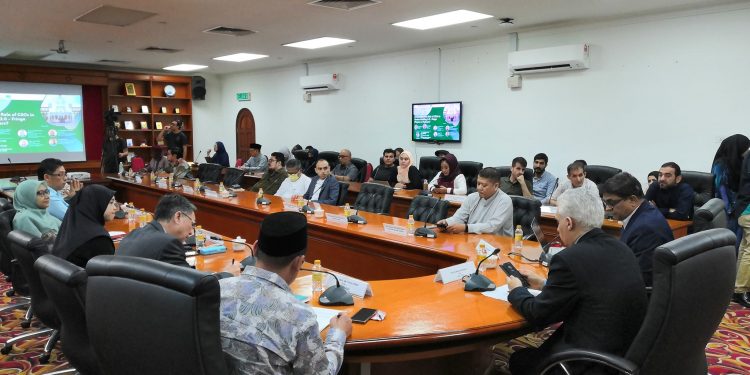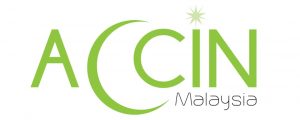As a follow up to the similarly titled forum held online on 11 November 2021, this seminar was held on Friday, 10 February 2023 at the International Institute of Islamic Thought and Civilization (ISTAC-IIUM) Kuala Lumpur to revisit the topic, especially in light of the change in government after the recent general elections.
In his opening speech, Hj Ir Jamaludin Shamsudin, CEO of the Allied Coordinating Council of Islamic NGOs Malaysia (ACCIN), stressed the importance of the government and the public seeing CSOs as a third force which provide a check and balance to the elected government. Accordingly, he said funding should be allocated to CSOs from the national budget for them to function effectively, and this can be done via matching grants as is done in developed countries.
Dean of ISTAC, Prof. Dr. Abdelaziz Berghout said CSOs do not exist just for doing activities to help people in need but for the bigger objective of nation building. Furthermore, he said that the Muslim narrative is different as Muslims are supposed to be the vicegerent or ‘khalifah’ of God on earth. Among other qualities, CSOs should promote care and compassion, trust, innovation and creativity and strive for sustainability in their respective focus areas.
Four panelists from various backgrounds presented their views on specific topics given to them. Hj Badlishah, President of IKRAM Malaysia addressed the question of how CSOs can create effective advocacy and influence government policies. They have been particularly successful in the education arena. He stressed the importance of having strategic areas of focus, doing quality research resulting in proposals backed up with data and performing a proof of concept on the policy recommendations. In addition, strategic partnerships with other CSOs and a proven track record will facilitate obtaining funding from various sources.
Siti Fadilah, Deputy CEO of Islamic Relief Malaysia took the discussion to the international scenario where she spoke about the challenges of creating a successful international CSO. Noble intentions coupled with a non-profit, non-political approach do not guarantee an easy path for CSOs even if it is just for humanitarian and development needs of people. Such is the case for the faith-inspired Islamic Relief organisation, which has to face the stigma, Islamophobia and media discrimination attached to such organisations. In spite of continuing social, financial and political challenges, they have managed to successfully establish a sustainable and resilient organisation spanning more than 45 countries in nearly 40 years.
On the perception of the government regarding the role of CSOs in nation building, Dr. Sharifah from UKM pointed out that governments do recognise that CSOs have a close relationship with the people. She stated that CSOs are predominantly non-Muslim based and focus on middle class issues. While CSOs generally strive for democracy and good governance, they are also seen by the government to have their own negative issues such as self-interest, resistance to change, constant demand for rights, power struggles between CSOs and sometimes even being bureaucratic. Her message was that CSOs must continually strive to maintain their reputation and track record.
Based on his years of experience as a journalist, Eddin Khoo covered the impact of cultural and heritage activism of CSOs to nation building. He commented that most citizens are critical about what the nation state can do for the people and that democracy is not just a participatory process but also an educational process. According to him, we are a maturing democracy and the starting point of the people questioning the government was the ‘reformasi’ movement of 1998. While society is now more knowledgeable and capable than is acknowledged by the political protagonists, the influence of colonialism in the CSO scenario is very strong, e.g. the term ‘liberal’ and the gender debate seem to have been hijacked by the western view of them. The ability to initiate multi-faith dialogue, not just about tolerance but also inclusivity is another indicator of the maturity of our democracy. He feels that CSOs are closer to being tolerated than to being in partnership with the government and regulations with regard to CSOs are still restrictive. Over the years, slogans such as Islam Hadhari, Bangsa Malaysia, Keluarga Malaysia and now the Madani framework have been pushed forth, but implementation and the impact achieved leave a lot to be desired. His view is that we are still far from making the government accountable. He strongly feels that thought processes are important in advocacy – we need to ‘think’ our societies through to achieve the desired impact in the long run.
The presentation by the panelists was followed by a question and answer session. At the end, the following resolutions were adopted:
1. Acknowledgement from the Government via annual or biannual recognition of CSO organisations and individuals.
2. Government to provide a mechanism for matching grants for CSOs. This is to recognise and encourage viable collaborations on the nation building agenda so that full-timers with the support of volunteers can professionally administer them.
3. Creation of a Charity Act for foundations.
4. CSOs should be seen in Malaysia’s maturing democracy as a check and balance to the government as a third force.
5. Encourage State and CSOs collaboration at parliamentary level through creation of timely and functional APPGs with CSOs as secretariats help crystallise understanding of various issues on nation building. One good initiative has been the promotion for the creation of an APPG on governance, integrity and anti-corruption by IKRAM.
6. Leverage on the concept and function of Civil Society in relation to the Madani Framework to facilitate nation building and the revival of Malaysia’s national and cultural memory; and rebuilding its capacity among the youth.
7. Develop a national action plan for CSOs partners in nation building with relevant mapping, scope, thrusts, strategies and initiatives. This should also include a CSO performance index. Training on social mediation should also be incorporated to build trust between the Government and CSOs; as well as networking, sharing and capacity building to identify best practices.
8. Government needs to recognise that anti-Islamic or Islamophobic agenda-based CSOs are often funded heavily by international organisations with their own agenda and this should be countered with appropriate funding to the relevant CSOs which promote the national agenda.
9. Establish PR representatives from the CSOs to create rapport with the government in the CSO focus areas.
10. We are living in the post-normal situation now (pandemic, economic crisis, natural disasters, etc) and thus CSOs must focus on capacity building to equip their activists with the necessary skills to address the various contemporary challenges.
11. The thinking process towards nation building needs to be put in place, so a think tank comprising the relevant CSOs should be created.
12. Need to create ownership of CSOs at the national level.









